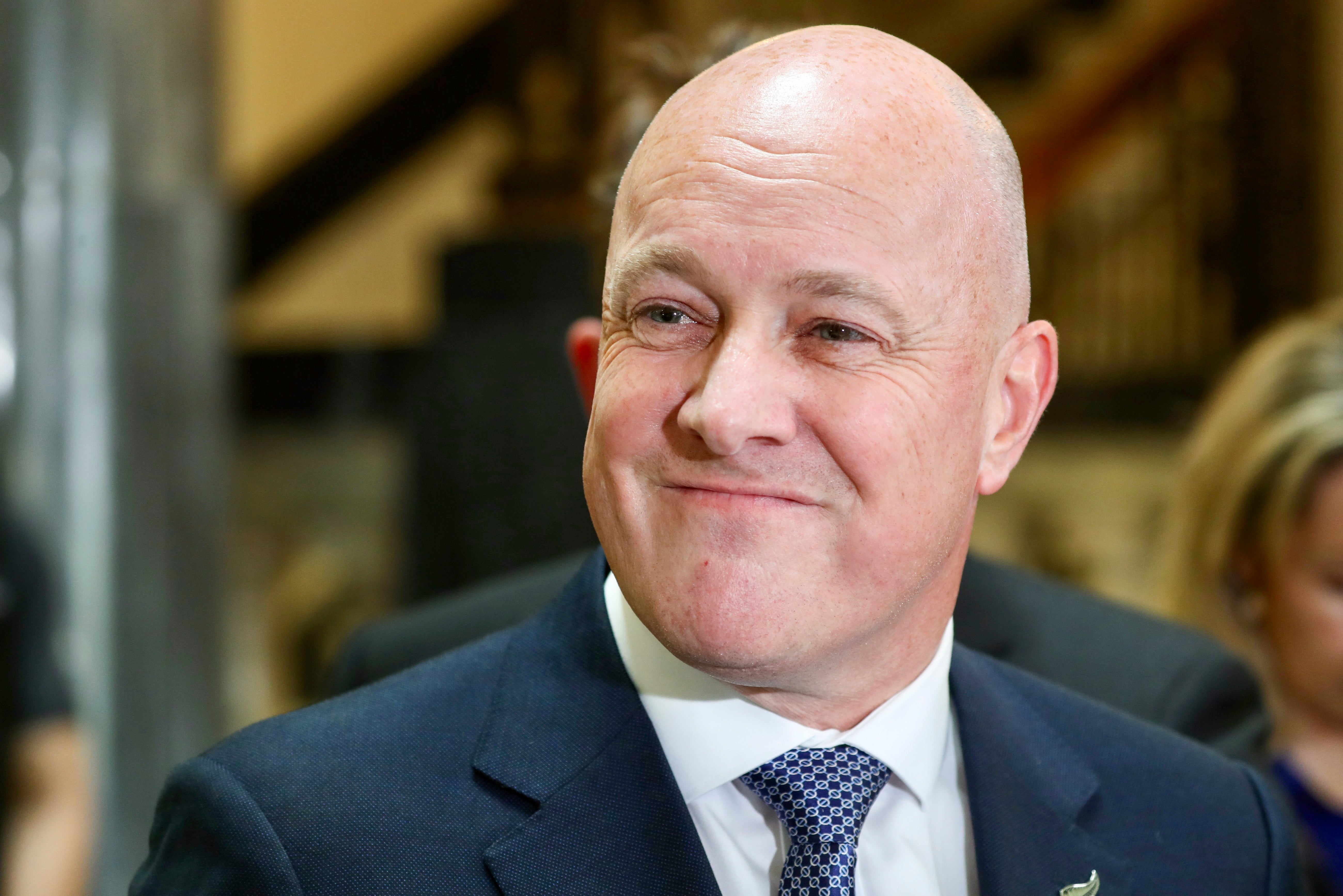New Zealand finally agrees makeup of coalition government after weeks of uncertainty
Leaders of three parties arrive at deal to form government led by incoming prime minister Christopher Luxon

Your support helps us to tell the story
From reproductive rights to climate change to Big Tech, The Independent is on the ground when the story is developing. Whether it's investigating the financials of Elon Musk's pro-Trump PAC or producing our latest documentary, 'The A Word', which shines a light on the American women fighting for reproductive rights, we know how important it is to parse out the facts from the messaging.
At such a critical moment in US history, we need reporters on the ground. Your donation allows us to keep sending journalists to speak to both sides of the story.
The Independent is trusted by Americans across the entire political spectrum. And unlike many other quality news outlets, we choose not to lock Americans out of our reporting and analysis with paywalls. We believe quality journalism should be available to everyone, paid for by those who can afford it.
Your support makes all the difference.New Zealand’s political parties have finally reached an agreement to form a coalition government, bringing an end to a weeks-long political deadlock after general elections.
The leaders of three political parties said on Thursday that they had arrived at a deal to form the next government.
A formal signing ceremony to cement their coalition is expected to be held in parliament on Friday, they said.
“I’m really proud of the negotiations,” said New Zealand’s incoming prime minister Christopher Luxon.
“When you see the agreements tomorrow, you’ll understand how comprehensive they are. We’ve covered a tremendous amount of material.”
The leader of the centre-right National Party told reporters his swearing-in ceremony will take place on Monday.
The National Party reached an alliance with the conservative Act and populist New Zealand First parties, giving it enough seats to govern.
The agreement breaks nearly six weeks of political deadlock after the 14 October general election.
The National Party had secured a narrow victory over the incumbent Labour party. It had initially clinched a slim majority to form a coalition government with the right-wing Act party.
But this majority had diminished when supplementary voting results, including special votes, were revealed three weeks later.
The National Party had to turn to a third party, the nationalist New Zealand First, to attain the necessary 61-seat majority for government formation.
Mr Luxon’s party won 38 per cent of the votes, with David Seymour’s Act and Winston Peters’s New Zealand First winning 9 and 6 per cent respectively.
The incoming prime minister said the full coalition deal with the two other parties will be released on Friday, with an announcement of ministerial positions later that afternoon.
Outgoing prime minister Chris Hipkins of the Labour party had declared that he wouldn’t work with Mr Peters and conceded to Mr Luxon on election night.
Mr Hipkins had the top job for just nine months after former prime minister Jacinda Arden abruptly stepped down in January, saying she no longer had “enough in the tank” to do the job justice.
Join our commenting forum
Join thought-provoking conversations, follow other Independent readers and see their replies
Comments